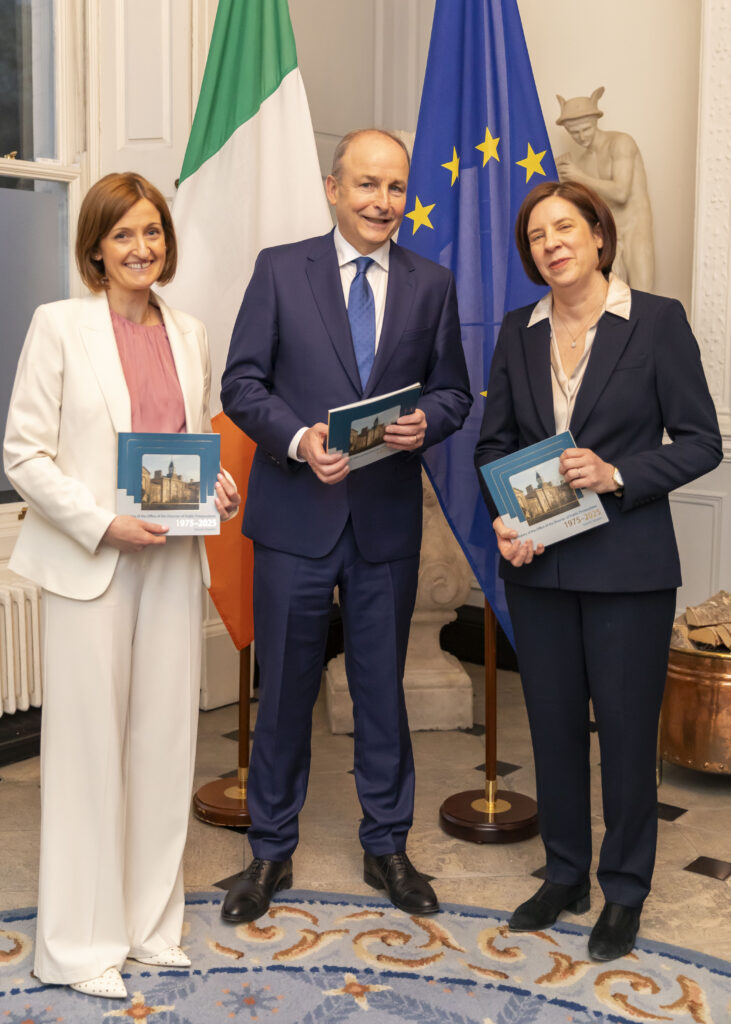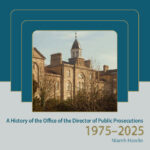50 Years of the Office of the Director of Public Prosecutions
This year, 2025, the Office of the Director of Public Prosecutions is commemorating 50 years since its establishment and the appointment of the first DPP in 1975.
To commemorate this important milestone in the history of the prosecution service, we held an event in Iveagh House on Thursday 27 March 2025. The Taoiseach attended to deliver the keynote address and we launched a specially commissioned book ‘A History of the Office of the DPP: 1975-2025’ written by Dr Niamh Howlin of the Sutherland School of Law in UCD on the evening.

L-R: Dr Niamh Howlin, An Taoiseach Micheál Martin and DPP Catherine Pierse
The event was attended by former DPPs, senior members of the judiciary, the Minister for Justice, Attorney General, senior members of An Garda Síochána, and other senior figures from across the criminal justice system.
The Director, Catherine Pierse, delivered a speech at this event reflecting on 50 years of the prosecution service. In her speech, the Director remarked on the reasons behind the Government decision to establish an independent Office of the DPP, some 50 years ago, saying:
The purpose of the new office was to strengthen public confidence in the rule of law by ensuring there could be no political interference or perception of interference in these decisions… the key principle underpinning our work is still the one established in Article 30.3 of the Constitution – that prosecutions are brought on behalf of the people of Ireland, and not on behalf of any individual, organisation or government.
The value of “independence” therefore is at the core of the origin story of the Irish prosecution service, and it is deeply embedded in our culture. As prosecutors we know that we must make our decisions based on the evidence and the public interest and free from external influence or bias.”
Speaking about the impact of the Office of the DPP’s decisions, the Director noted:
I know that the prosecutors who work in my Office are deeply aware of the impact that our decisions have on the lives of people who are involved in each case – whether as a victim, an accused or a witness. Where a decision is made not to prosecute, victims can feel disbelieved and unheard. Where a decision is made to prosecute, an accused person’s life can be turned upside down, with implications for their job, family and future. The wider community’s confidence in the rule of law is also at stake.”
You can read the full text of the Director of Public Prosecutions speech here.
You can read the specially commissioned book ‘A History of the Office of the DPP: 1975-2025’ by Dr Niamh Howlin here.
